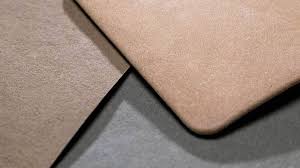This inventive substance is made from leftover hemp cropped for food production mixed with a plant-based adhesive; it is vegan, oil-free, recyclable, and compostable. Because of its adaptability, moldability, and ability to be made using current industrial machinery, LOVR is scalable for large-scale manufacturing.
By 2028, LOVR may be incorporated into Volkswagen automobile interiors and find use in apparel, shoes, and furniture. In contrast to conventional materials, LOVR is free of plastics derived from fossil fuels, allaying worries about environmental microplastics. Positive feedback regarding the topic has already been received during initial presentations.
Kai Grünitz of Volkswagen highlighted the company’s dedication to developing vehicles that are resource-efficient and sustainable, while also investigating novel materials in a variety of industries. In an effort to improve supply chain transparency and reach net carbon neutrality, the automaker joined the Leather Working Group in 2023.
Revoltech, a 2021-founded TU Darmstadt spin-off, was acknowledged for its ability to transform both conventional and synthetic leather when it won the Techtextil Innovation Award for LOVR. Although VW is not the first manufacturer to experiment with hemp, this collaboration—which follows previous initiatives by firms like Ford and BMW—marks a critical step toward sustainable materials in the automobile sector.

